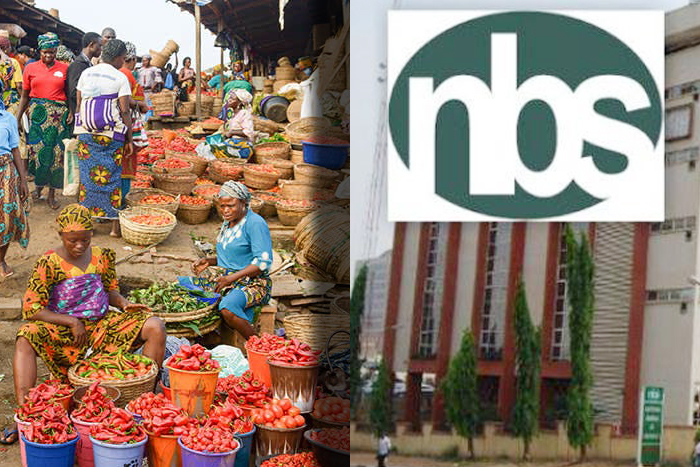
Nigeria’s headline inflation has eased for the first time in 19 months in July to 33.4 per cent.
The National Bureau of Statistics (NBS) reported a decline in Nigeria’s headline inflation rate, which dropped to 33.40 per cent in July 2024. This figure represents a slight decrease of 0.8 percentage points from the 34.19 per cent recorded in June.
The Consumer Price Index (CPI) and Inflation Report for July 2024, released by the NBS in Abuja, highlights this reduction. Despite the monthly decline, the year-on-year comparison shows that the inflation rate in July 2024 was 9.32 percentage points higher than the 24.08 per cent recorded in July 2023.
On a month-on-month basis, the headline inflation rate in July 2024 stood at 2.28 per cent, which is a marginal decrease from the 2.31 per cent recorded in June 2024. This suggests that the rate of increase in the average price level in July was slightly slower than that of June.
The report attributes the year-on-year and month-on-month increases in the headline index to rising prices of various goods and services across different divisions. Notable contributors include food and non-alcoholic beverages, housing, water, electricity, gas, and other fuels, along with clothing, footwear, and transportation. Other areas experiencing price hikes were furnishings, household equipment, education, health, miscellaneous goods and services, restaurants and hotels, alcoholic beverages, tobacco and kola, recreation and culture, and communication.
The report also notes that the average CPI for the 12 months ending in July 2024 increased by 30.76 per cent, marking an 8.84 percentage point rise compared to the 21.92 per cent recorded in July 2023.
Food inflation, in particular, saw a significant year-on-year increase to 39.53 per cent in July 2024, up by 12.55 percentage points from 26.98 per cent in July 2023. The NBS attributes this rise to the increased prices of staples such as semovita, yam flour, wheat flour, Irish potatoes, and various oils.
On a month-on-month basis, food inflation slightly decreased to 2.47 per cent in July, down from 2.55 per cent in June 2024. This decrease was influenced by lower prices for items such as tin milk, baby powdered milk, mudfish, fresh fish, and certain fruits and vegetables.
Core inflation, which excludes volatile agricultural produce and energy, rose to 27.47 per cent in July 2024 on a year-on-year basis, representing a 6.99 percentage point increase from the 20.47 per cent recorded in July 2023. The report attributes this rise to the deregulation of PMS following the removal of subsidies.
The report further breaks down inflation rates across urban and rural areas. In July 2024, urban inflation was 35.77 per cent, up by 9.94 percentage points from July 2023, while rural inflation stood at 31.26 per cent, reflecting an 8.77 percentage point increase from the previous year.
In terms of regional analysis, Bauchi recorded the highest year-on-year inflation rate at 46.04 per cent, followed by Jigawa at 40.77 per cent, and Kebbi at 37.47 per cent. Conversely, Benue experienced the slowest rise at 27.28 per cent, followed by Delta and Borno at 28.06 per cent and 28.33 per cent, respectively.
On a month-on-month basis, Abuja led with the highest inflation rate at 3.91 per cent, followed by Borno at 3.84%, and Enugu at 3.76 per cent. The slowest increases were recorded in Taraba, Kwara, and Ondo, with inflation rates of 0.71 per cent, 0.62 per cent, and 0.91 per cent, respectively.
Regarding food inflation, Sokoto topped the year-on-year chart at 46.26 per cent, with Jigawa and Enugu following closely. The slowest rise in food inflation was observed in Adamawa, Bauchi, and Benue. However, on a month-on-month basis, Borno, Sokoto, and Enugu saw the highest increases, while Kwara, Taraba, and Ondo experienced the slowest rises.
Copied
